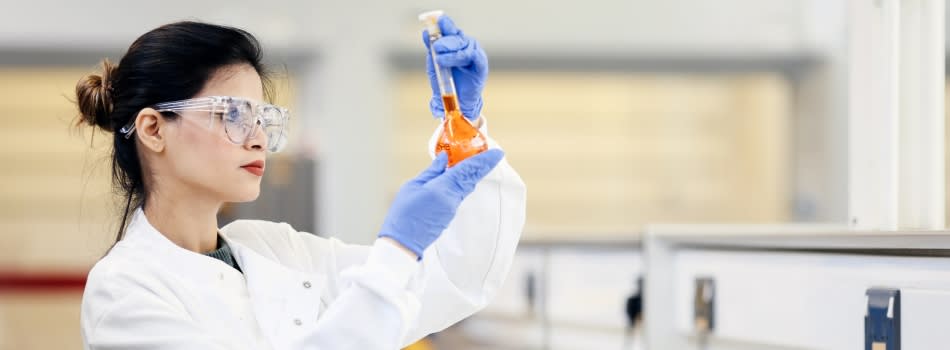Smart, adaptive or stimuli-responsive materials, all refer to a range of materials that are able to adapt or alter their properties such as colour, transparency, shape or stiffness, in response to changes in the surrounding conditions (e.g. temperature, pH, presence of an analyte, exposure to light, electric field, etc.). These materials are key for diverse emergent applications such as sensing and imaging, drug delivery, tissue engineering or soft biorobotics.
In this research project we combine soft materials with supramolecular chemistry (a timely area of research which has been awarded two Nobel Prizes in the last 30 years). The main objective of the project is to develop smart materials (gels and nanoparticles) designed at the molecular level. The successful applicant will work with Dr Ana Castilla to design and synthesise functionalised (supramolecular) polymers and study their dynamic behaviour in response to different stimuli (e.g. interactions with anions, drugs or biomolecules). This will involve organic and polymer synthesis, studies on molecular recognition and self-assembly phenomena in solution and (nano)materials characterisation. The materials design will focus mainly on applications in controlled drug delivery. Other applications include water recycling, tissue engineering and sensing.
Training
This project provides a multidisciplinary training opportunity. The successful candidate will be trained in organic and polymer synthesis, in a range of techniques used in the characterisation of systems in solution and materials (e.g. NMR, HPLC, DLS, rheology), and acquire relevant transferable skills (e.g. oral and written presentation of research results, research management, supervision of less experienced researchers).
Applicants
A chemistry-based degree with a strong knowledge of organic chemistry is an essential requisite. Experience in supramolecular chemistry and/or materials chemistry and/or drug delivery is desirable. Good knowledge of the English language (both written and spoken) is essential. In addition, the successful candidate will demonstrate strong commitment to high quality research and enthusiasm for learning new methods and techniques.
For further information see:
https://www.gre.ac.uk/research/study/research-studentships-and-scholarships
https://www.gre.ac.uk/people/rep/faculty-of-engineering-and-science/dr-ana-castilla
Funding
£15,285 per year (subject to annual increase in line with RCUK rate)
In addition, the scholarship will fully cover tuition fees for UK/EU applicants (£4,407 per year). Non-UK/EU applicants will need to pay the difference with the higher non-UK/EU tuition fees for a lab-based programme for the duration of their scholarship. This fee is subject to an annual increase.
Scholarships are available for three years, full-time study from the date scholars first register as an MPhil/PhD student with the university. Applicants must meet the programme entry requirements.
Enquiries
Contact Dr Ana Castilla ([Email Address Removed])
How to apply
To apply please complete the online application form (no other form of application will be considered). Reference: VCS-FES-05-20
This opportunity may close once a suitable candidate has been found so early applications are encouraged.
Information on the application process is available at: https://www.gre.ac.uk/research/study/apply/application-process.
All applications must include the following information (uploaded to the 'Qualification' section of the application):
- Scholarship Reference Number (Ref)– included in the personal statement section together with your personal statement as to why you are applying
- a CV including the names and contact details of 2 referees
- academic qualification certificates/transcripts
- IELTs/English Language certificate if you are an international applicant or if English is not your first language or you are from a country where English is not the majority spoken language as defined by the UK Border Agency.

 Continue with Facebook
Continue with Facebook




